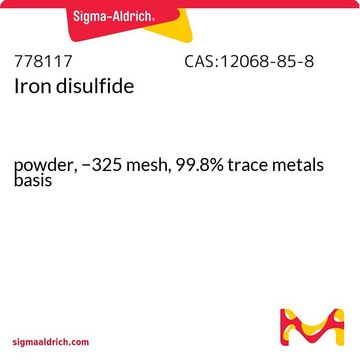Alle Fotos(1)
Wichtige Dokumente
37-0480
Zinkoxid
SAJ first grade, ≥99.0%
Anmeldenzur Ansicht organisationsspezifischer und vertraglich vereinbarter Preise
Alle Fotos(1)
About This Item
Lineare Formel:
ZnO
CAS-Nummer:
Molekulargewicht:
81.39
MDL-Nummer:
UNSPSC-Code:
12352302
PubChem Substanz-ID:
Assay:
≥99.0%
Qualität:
SAJ first grade
Form:
solid
Empfohlene Produkte
Qualität
SAJ first grade
Assay
≥99.0%
Form
solid
Eignung der Reaktion
reagent type: catalyst
core: zinc
Verfügbarkeit
available only in Japan
Lagertemp.
15-25°C
SMILES String
O=[Zn]
InChI
1S/O.Zn
InChIKey
XLOMVQKBTHCTTD-UHFFFAOYSA-N
Suchen Sie nach ähnlichen Produkten? Aufrufen Leitfaden zum Produktvergleich
Anwendung
Verwendet bei der Herstellung von NaZnSiO3OH, einem neuartigen chiralen Gerüstmaterial mit potenziellen Anwendungen bei Ionenaustausch, Adsorption oder Katalyse.
Signalwort
Warning
H-Sätze
P-Sätze
Gefahreneinstufungen
Aquatic Acute 1 - Aquatic Chronic 1
Lagerklassenschlüssel
13 - Non Combustible Solids
WGK
WGK 2
Flammpunkt (°F)
Not applicable
Flammpunkt (°C)
Not applicable
Hier finden Sie alle aktuellen Versionen:
Besitzen Sie dieses Produkt bereits?
In der Dokumentenbibliothek finden Sie die Dokumentation zu den Produkten, die Sie kürzlich erworben haben.
A Ra Kim et al.
Journal of biomedical nanotechnology, 9(5), 926-929 (2013-06-28)
Our innate immunity is composed of several integral leukocytes including neutrophil, NK cell, macrophage or so. They are usually known to produce reactive oxygen species (ROS), in order to induce cell damages by these oxidizing reagents, and finally disrupting mitochondrial
Xiaolong Li et al.
Journal of nanoscience and nanotechnology, 13(8), 5859-5863 (2013-07-26)
In this study, we present the synthesis of ZnO nanowire by hydrothermal process through reutilization of sludge from soy sauce wastewater electrochemical treatment. The influences of floc content and caramel pigment concentration on the morphologies of ZnO were studied. The
Long Giang Bach et al.
Journal of nanoscience and nanotechnology, 13(1), 694-697 (2013-05-08)
ZnO nanoparticles were covalently wrapped by polystyrene (PS) through surface thiol-lactam initiated radical polymerization using the grafting from approach. The surface of ZnO nanoparticles was initially modified by 3-mercapto propyltrimethoxysilane to afford thiol functionalized ZnO nanoparticles (ZnO-SH). The controlled radical
Hyeong Pil Kim et al.
Journal of nanoscience and nanotechnology, 13(7), 5142-5147 (2013-08-02)
Solution processed cathode organic photovoltaic cells (OPVs) utilizing thin layer of ZnO with 27% increase in power conversion efficiency (PCE) to control devices have been demonstrated. Devices without the presence of ZnO layer have much lower PCE than the ones
Dadong Guo et al.
Journal of nanoscience and nanotechnology, 13(6), 3769-3777 (2013-07-19)
Nanomaterials, including zinc oxide (ZnO) nanoparticles, are being developed for a variety of commercial products. Recent reports showed that cells exposed to ZnO nanoparticles produced severe cytotoxicity accompanied by oxidative stress and genotoxicity. To understand the possible mechanism underlying oxidative
Unser Team von Wissenschaftlern verfügt über Erfahrung in allen Forschungsbereichen einschließlich Life Science, Materialwissenschaften, chemischer Synthese, Chromatographie, Analytik und vielen mehr..
Setzen Sie sich mit dem technischen Dienst in Verbindung.





